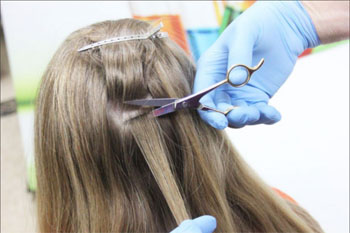Cortisol Levels in Hair Can Predict IVF Success
By HospiMedica International staff writers
Posted on 04 Nov 2016
Elevated levels of the stress hormone cortisol in hair can significantly predict the likelihood of pregnancy in women undergoing in vitro fertilization (IVF) treatment, according to a new study.Posted on 04 Nov 2016
Researchers at the University of Nottingham (United Kingdom) conducted a study involving 135 women (mean age 34.5 years) recruited from a fertility clinic in Nottingham (United Kingdom) between December 2012 and April 2014; following IVF treatment, 60% of the women became pregnant. Salivary cortisol samples were collected over two days, on waking, 30 minutes after waking, and at 10 pm at night; 88 women also provided hair samples for the measurement of cortisol.

Image: New research indicates the levels of cortisol in hair could predict IVF success (Photo courtesy of SPL).
After analyzing both types of cortisol data, the researchers found that short-term salivary cortisol measurements were not related to pregnancy results. In contrast, 27% of the variance in pregnancy outcome was accounted for by hair cortisol concentrations, after controlling for other known factors linked to IVF success such as age, body mass index (BMI), number of eggs retrieved, and number of eggs fertilized. The study was published on August 30, 2016, in Psychoneuroendocrinology.
“We know that many factors will influence the likelihood of IVF success and, at this stage, we do not fully understand all of the factors that influence whether treatment works or not. However, optimizing patient’s chances of IVF success is key, and this research suggests that reducing cortisol in the months prior to treatment may play an important part in conception,” concluded lead author Adam Massey, MD. “The good news for patients is that well known lifestyle changes may help to lower cortisol and therefore optimize the likelihood they will get pregnant.”
“Researchers have been interested in the role that cortisol may play in determining reproductive outcomes for some time now, not least because cortisol is typically elevated in relation to stress,” said senior author Kavita Vedhara, PhD, of the division of primary care. “While these results do not specifically implicate stress, they do provide preliminary evidence that long term cortisol levels are associated with a reduced likelihood of conceiving. A range of factors is likely to account for that, stress being one possibility.”
Cortisol is a well-known stress hormone, and until recently could only be measured within a short time span. But by measuring levels in about 100 strands of hair clipped from the scalp, cortisol levels can be assessed as a retrospective biological indicator of stress over the past three months, indicating chronic or accumulated stress. Studies have also demonstrated interactions with factors associated with health disparities such as racial/ethnic identity, sex, and socioeconomic status (SES).
Related Links:
University of Nottingham














